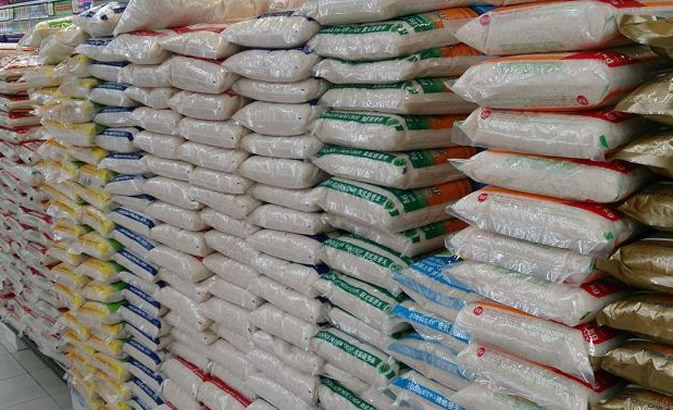The Nigeria Customs Service has revealed that rice was the most frequently seized commodity in the first quarter of 2025, with 159 cases involving 135,474 bags valued at ₦939 million.
Comptroller-General of Customs, Adewale Adeniyi, disclosed this during a media briefing in Abuja on the service’s first-quarter activities. His remarks were contained in a speech shared with our correspondent.
“Rice remained the most prevalent seized commodity, with 159 cases involving 135,474 bags valued at ₦939m. Petroleum products followed with 61 seizures totalling 65,819 litres valued at ₦43m,” Adeniyi said.
Aside from Rice, other seized products
He noted that beyond rice and petroleum, the service also intercepted 22 cases of narcotics, valued at ₦730 million, demonstrating increased efforts to tackle drug trafficking.
“The service also recorded three high-value wildlife product seizures with a remarkable ₦5.6bn value, underscoring both the lucrative nature of this illegal trade and our commitment to environmental protection under international conventions,” he added.
Other significant seizures during the period included 13 cases of textile fabrics worth ₦134 million, five cases of retreaded tires valued at ₦104 million, and one case of pharmaceuticals valued at ₦17.1 million. Adeniyi emphasised that, “These comprehensive results demonstrate the service’s vigilance across all categories of prohibited and restricted goods.”
Highlighting strategic enforcement priorities, the CGC said the service continues to focus on high-volume goods like rice and petroleum through intensified border surveillance.
“Specialised operations targeting high-value wildlife trafficking, building on existing collaborations with UNODC and other international partners, sustained focus on dangerous narcotics and pharmaceutical smuggling, implementation of advanced non-intrusive inspection technology to improve detection rates,” he stated.
He noted that these seizures, spanning from rice to wildlife, reflect a targeted enforcement strategy. While progress has been made, Adeniyi acknowledged the dynamic nature of smuggling activities.
He affirmed the agency’s commitment to evolving enforcement efforts: “The NCS remains committed to refining its enforcement strategies through intelligence-led operations, technological advancement, and strengthened interagency cooperation to protect national revenue and security.”
On modernisation, Adeniyi reported several achievements aligned with the service’s development agenda during the review period. He said the continued deployment of the locally developed customs clearance system, B’Odogwu, to more formations nationwide has led to improved operational efficiency and better service delivery.
Additionally, he announced the official launch of the Authorised Economic Operators (AEO) Programme in February. According to him, the initiative, endorsed by the World Customs Organisation, recognises compliant and security-conscious businesses.
“This program provides benefits such as expedited clearance, reduced inspections, and enhanced predictability in customs procedures for qualifying operators,” he explained.



